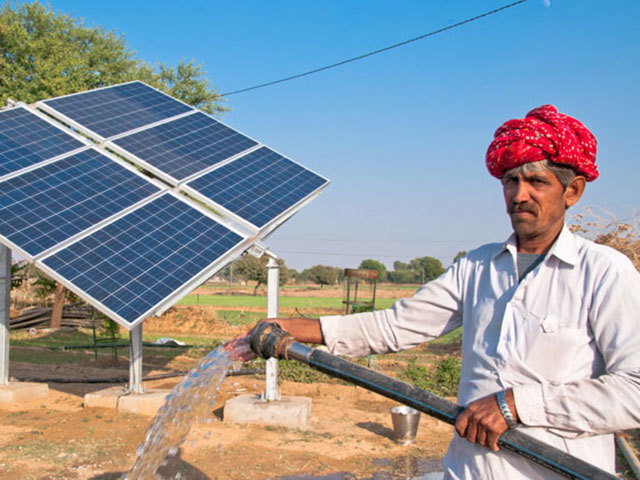
“I now live in a visible world”, says 62-year-old Tanzanian farmer Elizabeth Mukwimba, whose life has been transformed by access to electricity through solar power.
A solar panel and lights supplied with the help of UK aid money have cut her need to buy expensive, polluting kerosene, freeing up cash to put a new tin roof on her house and reducing the stress she suffered from money worries over paying for fuel.
It has also enabled her grandchildren to do their homework and read at night – improving their performance at school, she says.
“Solar energy has made a great impact on my life. I see everything compared to before, when I was in darkness. It has really helped me,” she said.
The Department for International Development (DfID) backed scheme to bring household solar systems to remote, rural areas of Tanzania, by providing financing to companies for meeting targets to roll out the technology to people, is part of UK aid funding earmarked to help tackle climate change.
The UK Government is hoping to help kick-start start a solar revolution across Africa, to help bring electricity to the two-thirds of people in sub-Saharan Africa who are currently without access to power, without relying on fossil fuels such as coal.
Overall, the UK will have spent £3.87 billion between April 2011 and March 2016 on climate aid, and has pledged £5.8 billion from 2016 to 2021, as part of the aid budget, as its contribution to a UN aim to ensure 100 billion dollars (£66 billion) of public and private finance a year by then.
Helping poor countries develop without following the same polluting track as rich nations and to cope with already-inevitable impacts of climate change will have to be a key part of any new deal on global warming agreed at talks in Paris.
Christian Aid’s senior climate advisor Mohamed Adow said the talks would need to show rich countries delivering on their promise to provide finance to help poor countries avoid fossil fuels and develop using clean technology.
“And for those vulnerable countries already facing the impacts of climate change, they need to be helped to adapt to a changing climate, especially considering they have done nothing to cause the problem in the first place,” he said.
A Christian Aid project, backed by DfiD, in Ethiopia, where drought has become more common, is helping people grow drought-resistant grass pastures for their livestock, store up hay for times the rains fail and build a reservoir to ensure water for their animals.
Kala Mana, an elder pastoralist in the Hamer region, said: “There may be drought, there may be disaster coming, but if we keep expanding the grasslands I don’t fear drought.”
In Laos, South East Asia, where the weather has become much more unpredictable and temperatures hotter, Oxfam has been working with communities to install speaker systems to give early warnings of flood so people can move their possessions to safety, and grow rice which is adapted to the new conditions.
Recommended for you
